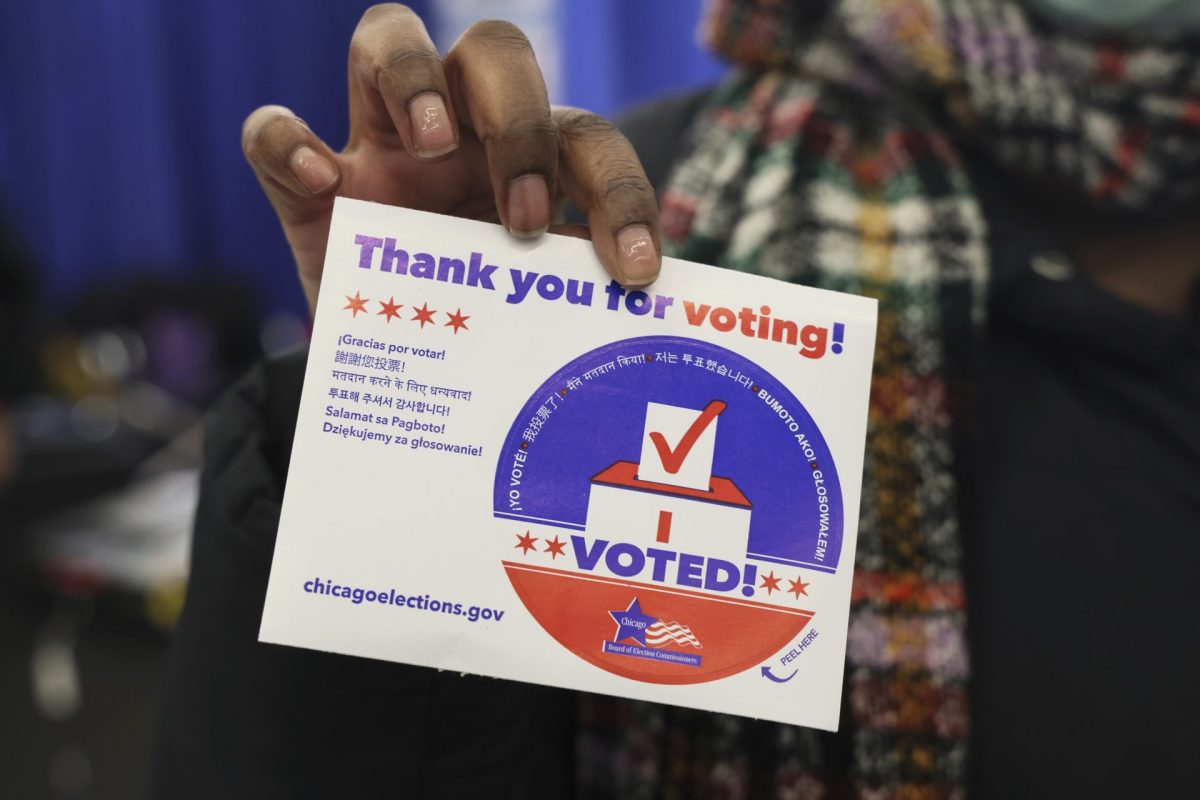Voter turnout among Latinos likely will play “a huge role” in determining the outcome of the upcoming presidential election, according to Lourdes Torres, director of the Center for Latino Research at DePaul University.
The big question: Will Latinos show up on Nov. 6 the way they did in 2008?
According to the Pew Hispanic Center, Latinos voted by a margin of more than two-to-one for Democrats Barack Obama and Joe Biden over Republicans John McCain and Sarah Palin. Many were apparently enthralled by the overall message of change that the Obama campaign carefully crafted and directed to them, and the promises the President made in regards to immigration reform.
“Latinos identified with Obama because, to them, he seemed completely different and fresh and nothing like the previous Bush administration,” said Maria Isabel Ochoa, assistant director of the Latin American and Latino Studies Program at DePaul University.
Pew Hispanic Center associate director Mark Hugo Lopez said the amount of Latinos in the electorate has grown over the past two elections. “In 2008, 9 percent of the electorate was made up of Latinos and grew by 1 percent from the previous presidential election in 2004,” said Lopez.
However, for the upcoming election, Latino voter enthusiasm may be dwindling in comparison to the last. According to an NBC news report from Oct. 3, “59 percent of Latino voters say they are between 9-10 (out of 10) in their enthusiasm for the election, far behind the 88 percent who said they were at least an ‘8’ in the run-up to the ’08 election.”
Lopez also pointed out that though there has been an increase in Latinos eligible to vote since 2008, it is highly unlikely they will do so at the rate in which some expect them to, given many factors such as age range and location.
In his most recent report for Pew Hispanic Center, Lopez found that Latino voter turnout is not as high as other groups because, for one thing, their younger age range especially in the 18-29 demographic, tends to vote at much lower rates. Also, many Hispanics are located in California and Texas: neither of which are battleground states.
Nonetheless, Torres argues Latino voter registration has been steadily increasing in key battleground states, including Florida, as well as other states like Georgia, North Carolina and Alabama.
“It is in these key states that the Latino vote will matter,” said Torres.
In battleground states like Colorado, Nevada and Florida with a significantly large Latino population, Latino voter turnout could surely make the difference for either of the candidates. Particularly, in Florida in which according to an NBC news report, “Obama leads Romney by merely 1 percentage point, 47 to 46 percent.”
For the Obama campaign to secure this election, experts say it is important that they target Latino voters in key battleground states and focus on the issues this segment of the electorate cares about, primarily immigration reform and the economy.
“In passing the Deferred Action initiative, Obama took a key step in gaining back Latino voters trust and in many ways secured many their votes for the upcoming election” said Elizabeth Martinez, director of DePaul’s Center for Latino Research.
Prior to passing by executive order the Deferred Action for Childhood Arrivals program, President Obama’s overall approval amongst Latino voters had diminished, mainly due to deportations and the lack of immigration reform. Many Latinos feel what Obama has done in his first term in office was completely the opposite that which he promised, in that his administration has deported the highest number of undocumented immigrants in U.S. history.
On the other hand, Republican candidate Mitt Romney badly lags Obama among likely Latino voters according to a survey conducted last month by Pew Hispanic Center. In an effort to appeal to Latinos, Romney has said he “would honor deferred action granted by the Obama administration for some undocumented young people.” The Republican Convention’s platform, however, condemns the Deferred Action program.
Nonetheless, according to the Boston Globe, Romney’s camp is now saying that, if elected, their candidate would not continue with the program but would not revoke work permits for people who obtain them by the time he took office Jan. 20.
Many observers claim Romney’s unclear stance regarding the Deferred Action Program as well as the GOP’s condemnation of it continues to push Latino voters away from the Republican nominee.
Story from DePolitics2012.com, featuring work by DePaul communications graduate students.







